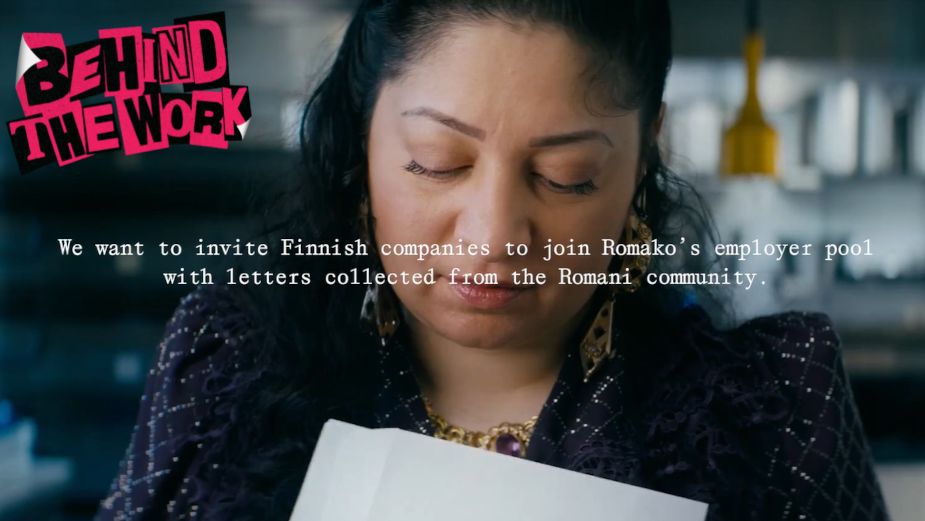
How SEK Helped the Finnish Roma Community Fight Back

According to the European Parliament, the Roma population is Europe’s largest minority. Originally migrating to Europe as a settler community, the many different types of Romani people have today adopted the cultures of and integrated within the societies of their host countries. Yet, regardless of history and the sheer amount of people from the Romani community that lives on the continent, they remain one of the most discriminated against minorities worldwide. Ranging from lack of housing, educational help, and sex education, to the blatant neglect of intersectional issues within the Roma community, Europe’s history of systemic discrimination and exclusion continues today.
However, in some parts of Europe, there are movements being born out of the resistance against discrimination both within the Roma community and outside, among allies. Diak, the Diaconia University of Applied Sciences, which is Finland’s biggest educator for social studies and diaconia work, is one of those allies. The university is known for its decade-long experience in projects that improve inclusion and aim to reduce inequality both in Finland, and internationally. And this is precisely what the ‘Romako’ project is made of. Katri Perho, project director at DIAK, explains: “Romako is a continuation of a long line of Roma work made in Finland. Roma people in this country still have a lower educational level than the main population, and prejudices make it difficult to find employment and internships.”
The intersectional issues that affect many different types of Roma people all across Europe stem from the inability of the system to integrate the community, while still preserving its culture. A lot of the time, the free education debate on the continent puts Roma people under social scrutiny for not ‘taking advantage’ of education for Roma children, but that doesn’t take into account the fees spent on textbooks, travel, clothes and other necessary school supplies. Katri continues, “We, at Diak, offer direct support to our participants with Romani background, who want to complete a vocational qualification or university degree. For example, we offer entrance exam exercises for university aspirants. We currently have around 90 participants in that, and more than half of them have already received a place in some educational institution.”
In addition, Diak’s ‘Romako’ project creates direct connections between Finnish employers and experts with a Roma background. The ultimate goal, Katri says, is to get at least 100 Roma to start their studies during the duration of the project, and 1000 employers to join Romako’s employer pool.
Enter SEK (part of Grey), the creative agency that took the ‘Romako’ project to the heights of creative media. In its collaboration with Diak, SEK took Finnish employers’ rejection letters that were sent to Roma applicants, and used them to drive a powerful message. After collecting hundreds of these letters, they returned them to the sender companies, reminding them that the carrying pillar of equity is giving everybody the same chance for employment, no matter their background. An attachment on the letters also invited these companies to join the above mentioned employer pool - a portal, which helps Romani people identify employers that are keen on hiring people of Romani descent without prejudices.
“We felt that our project goals really resonated with SEK, as they put a lot of work into the campaign. We were closely involved in the design from the beginning,” explains Katri. “Our perspective was well taken into account. Many Roma people participated in the planning and implementation of the project, as their perspective was paramount to the creation of a respectful and representative campaign for Finland’s Roma community.”
Lauri Gran, creative director and Samuel Räikkönen, senior creative at SEK remember the first interaction between the two parties of the campaign, back in 2022, when Diak approached the agency with the idea. “The employer pool was already open then, but it had problems finding companies that were willing to join. As the budget was miniscule, any sort of traditional media campaign was out of the picture.” They continue, “So, after a few initial ideas were scrapped, we pretty quickly landed on the idea of sending back rejection letters, and using them as our medium.”
One piece of research stood as the catalyst for the creation of the campaign. A study, carried out to understand more about the perceptions Finnish companies have towards Romani people in the workforce - the results of which shocked SEK. “50% of companies said they don’t believe people of Romani descent art at an equal position when applying for a job and 5% said that they aren’t willing to hire a Romani,” recalls Lauri. “In addition to the study we heard countless stories from people of Romani descent. They were all heart breaking and just tragic, but the way in which they told them was so nonchalant, that we got a clear picture of how common the discrimination is exactly.”
And while SEK described the experience of learning about the true scope of the issue as shocking, the Diak team were far from surprised. “Unpleasant experiences are not surprising for us,” says Katri. “Almost every adult Finnish Roma has unpleasant experiences related to job search, where they have not been treated as individual people, but as a collective image of their ethnicity.” Katri goes on to explain that it is quite ‘typical’ for employers to suddenly announce that the job has been taken mid-interview, once they finally get to the realisation that the interviewee is Roma. “When planning the campaign, we wanted to highlight these experiences, but at the same time create hope and solutions for the future.”
In the campaign case video we see exactly that - a man and a woman, both from Romani descent, describe their experiences with discrimination during an interview or while trying for a job, despite being qualified individuals. When speaking about the casting process, SEK’s creative team explains that due to the tight-knit nature of the Finnish Roma community, the word got around quickly enough for them to find the perfect candidates in a timely manner. “The invitation was for people to tell their stories and everyone’s story was both interesting and harrowing. We landed on Rosita and Jussi because their stories happened to have a happy ending, and seemed to be a representation of a couple of the more common experiences.”
And while the video fit only two examples, the mass send-out of the letters included everybody who applied and who had been rejected from a job due to racist prejudices. “Once we started to collect our letters, we managed to get our message to almost the entire community throughout Finland. It was so extremely important that we got letters from all over Finland, so that we could highlight the issue in other places than major cities,” says Samuel.
SEK’s team further explains that the return of the letters took some crafting as well. The wording of the attachment had to strike the right balance between remaining cordial, while also being challenging. “We were lucky enough to get Tino Nyman to design the attachment,” they say. Tino, known as one of Finland’s greatest graphic designers, happens to be of Romani descent himself. “It was important for us to involve the Roma community in as many parts of this campaign as possible,” say Lauri and Samuel.
And, although the ‘Romako’ project highlights the issues that the Roma community faces in Finnish society, Katri explains that even with the horrific statistics, Finland is probably one of the better countries in Europe when it comes to dealing with the integration of Romani people. “From an international perspective, a lot of things are actually better than in other places. Almost all Finnish Roma have a permanent and good apartment and the vast majority of young people study and try to make a career for themselves. Both the attempts at inclusion from Finnish society and Roma’s own pursuit to be part of it and to develop it are higher here than in many countries.” And although this is the result of years of hard work, it can barely be reason for celebration, as it is telling for the rest of Europe, for example in central and eastern Europe, where a lot of Roma can’t even get an ID card. “At the European level, things are progressing unfortunately slowly. We want to believe that in five years, higher education would be a common thing for the Roma in Finland, and possibilities of working life would be open to them just like to everyone else,” adds Katri.
This also reflects in the general positive reaction from the public towards the campaign. “The pool has generated interest among Finnish companies and many have joined. It’s still relatively early days to say if every company we approached will end up joining the pool, but we have our fingers crossed,” say Lauri and Samuel. They add, “The campaign and issue has been featured in most of the major news outlets in the country, and there’s more still on the way.”
Diak shares that its biggest hope for the project is that eventually, every student who has graduated and is employed through ‘Romako’ will be an example in their own community, that education remains worthwhile and prejudices can be overcome. “We hope to of course achieve our numerical goals, and that through our work the Roma become a common sight in the Finnish workforce. Our aim is that Finnish employers will get good experiences from our students and graduates, and will treat them more openly in the future. Prejudices can only be dispelled by real-life encounters.”













